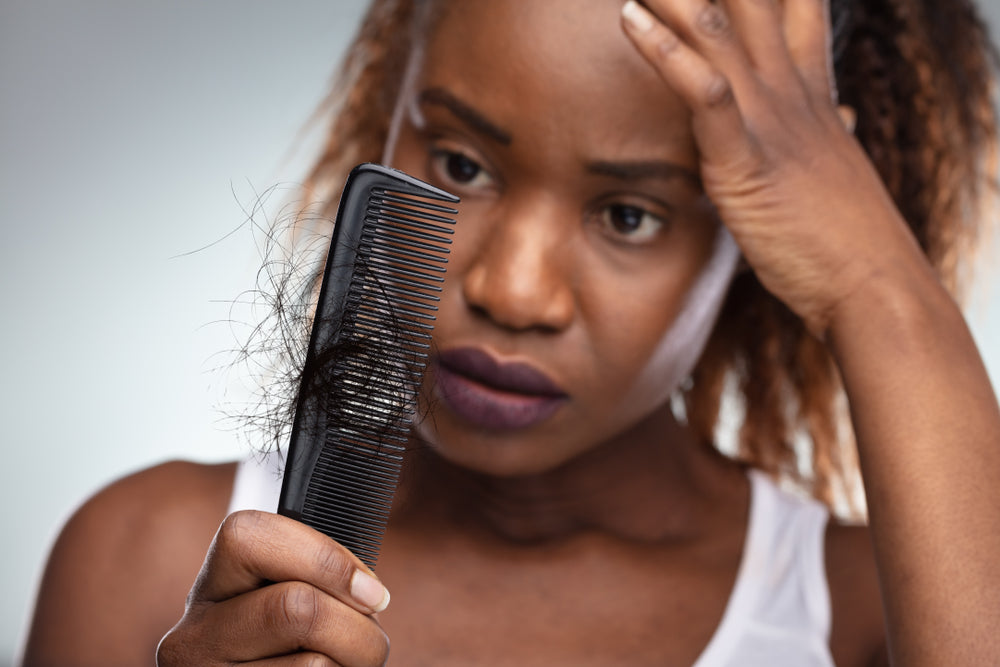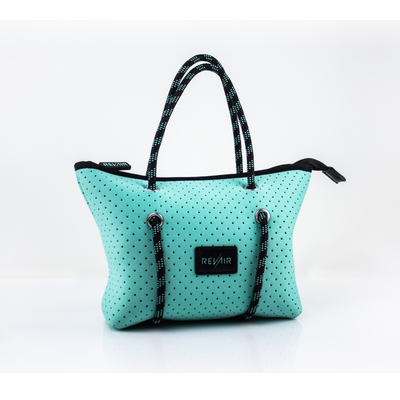
Hair Loss: Why It Happens And How To Manage It

If you have noticed your hairline receding or your crown thinning, you are likely experiencing hair fall or hair loss. According to the American Academy of Dermatology, 40% of women have visible hair loss by the time they hit 40 years old. Whether you are a man or a woman, losing hair can be pretty devastating for self-image and emotional wellbeing.
Fortunately, hair fall or hair loss tends to happen gradually, meaning you have enough time to find the causes and take the best corrective measures to remedy the trend. This piece focuses on why women lose their hair and the treatments that help reverse or slow down the balding process.
What Causes Hair Loss?
The following are the typical triggers of hair loss in women:
Hormonal imbalance
Hormonal imbalance can cause more beauty damage than the usual adult acne and weight gain issues. Hormones play a significant role in regulating the hair growth cycle, and any imbalance can cause hair loss. Women who have a hereditary predisposition to follicle sensitivity are at a higher risk of hormonal imbalance that affects their hair growth. Additionally, hormonal changes due to pregnancy, childbirth, menopause, and thyroid problems can also cause temporary or permanent hair loss in women.
Medications and supplements
According to Mayo Clinic, hair loss can also be a side effect of some medicinal drugs used for treating arthritis, heart problems, cancer, and depression. Other medications that can trigger hair loss include those used for treating high blood pressure, gout, and heart problems.
Stress
There is little doubt too much stress can make your hair literally fall out. Stress causes hormonal imbalance by raising androgen, which triggers hair loss. Stress can also trigger a host of other hair issues, including dandruff.
Some hairstyles and treatments
Excessive hair styling that pulls your hair too tight, such as cornrows or pigtails, can also cause a type of hair loss commonly referred to as traction alopecia. Additionally, some hair treatments such as hot oil hair treatments and permanent hair can also trigger hair fall. Should scarring occur during such treatments, the hair loss could become permanent.
Hereditary causes
One of the most common causes of hair loss in both women and men is a genetic condition that happens with aging. The condition, medically referred to as androgenic alopecia, occurs gradually and in predictable patterns. It is characterized by thinning hair in women and bald spots in men.
Nutritional deficiencies
For you to create and maintain healthy hair, you need to feed it with ideal nutrition. Nutritional deficiencies in protein, zinc, iron, and Vitamin B3 (niacin) have explicitly been linked to several types of hair loss.

8 Effective Ways to Combat Hair Thinning
If you notice your hair is falling, you don't need to panic. Here are some easy steps that can help reverse the loss and make it appear fuller again:
Don't under wash or over wash your hair
Under-washing and over-washing your hair can lead to massive hair thinning and falling. Notably, not washing enough results in oil and residue build-up that affect the volume and feel of your hair. Similarly, washing too frequently strips the hair of its natural oil to make it too dry and more prone to breakage. It is advisable to wash your hair as much as you need to, but not too much. Specifically, dermatologists advise that you wash your hair two to three times per week and no more.
Use hair conditioner after shampooing
According to the ADD, hair conditioners help give your hair a unique shine while reducing static electricity. Essentially, conditioning your hair can be a great way to improve the look and feel of damaged or dull hair. For the best results, use a wide-tooth comb to remove tangles and rinse with cool water. This ensures the follicles are closed while the hair is kept looking fuller and glossier.
Use leave-in products
Leave-in conditioners are designed to help keep your hair well moisturized for long periods. These products also help protect the hair from the impacts of heat styling that ultimately results in thinning and breakage. Remember to use these products in moderation, as too much may weigh your hair down.
Leverage deep conditioning hair masks
You can also use hair masks for deep conditioning that helps prevent hair loss. If you have a hair type that tends to dry and brittle easily, using a deep conditioning mask can help your hair regain its vigor and strength. An ideal deep conditioning mask can also help your hair look shinier and smoother. Experts recommend that you apply a deep conditioning mask once a week for extra moisturizing powers. It is recommended that you leave the mask for 15 to 20 minutes before rinsing with cool water.
Hair dry or style your hair gently
Heat causes massive damage to hair, leading to shelling and breakage. To limit the effect of heat on your hair, consider styling your hair gently while avoiding heat styling entirely. If you are putting your hair up, opt for styles that won't put too much pressure on your scalp or hair. Some of the styles that can lead to a higher risk of hair damage include tight braids, ponytails, and dreads. These styles tend to be more damaging when worn repeatedly and for extended periods.
Use over-the-counter treatment options
Notably, the ideal treatment for your hair loss problem is out there. If shedding is not resolved by the natural remedies we have discussed above, see your doctor for an evaluation of the underlying cause and an effective treatment option.
Eating healthy
A 2017 study revealed hair loss could be due to nutritional deficiencies, including low protein, vitamins, and amino acid intakes. Additionally, a review in Dermatology and Therapy reveals vitamins and minerals play a critical role in preventing hair loss. Some vitamins and minerals that can help prevent or reverse hair loss include:
- Selenium
- Zinc
- Vitamin B
- Vitamin E
- Vitamin C
- Vitamin A
- Vitamin D
If you are considering taking multivitamin supplements, talk to your doctor first. The ideal supplement should contain all or most of the recommended daily amounts of vitamins and minerals in a single dose.
Use ideal hair styling tools
Avoid high-heat hair styling tools that leave your hair follicles dehydrated and more prone to damage. The wrong hair dryers, curling irons, and hair straighteners can damage your hair with time. An ideal hair styling tool such as the Reverse-Air Hair Dryer is a perfect tool for your hair. Reverse-Air Hair Dryer gives women the power and flexibility to style their hair in a healthy, natural way, without high heat or chemicals, and in a fraction of the time, it takes with traditional methods.

How Common is Hair Loss in US women?
Studies reveal as many as 50% of women will notice a degree of hair loss as they age. A significant cause of hair loss in women is female-pattern hair loss (FPHL), affecting about 30 million women in the US.
Which Women are More Prone to Hair Loss?
Any woman or girl can be affected by hair falls. However, the problem is more typical in:
- Women who are older than 40
- Pregnant women and those who have just had babies
- Women who are going through menopause
- Women who have had chemotherapy and those using other medications
- Those who love hairstyles that strain the hair, such as tight braids or tight ponytails, and women who apply harsh chemicals on their hair.
What are the Myths About Hair Loss?
Notably, there are several myths about hair loss that can get you worried for nothing. If you are experiencing noticeable hair loss, differentiating between widespread myths and the TRUTH is key to winning a war against falling hair. Some of the untrue myths to watch out for include:
- Myth 1: Hair can fall out if you wear your hats too much: This myth assumes that your scalp needs to breathe, and wearing a hat too often stifles the oxygen. This is not true because the oxygen that your hair needs is derived from your bloodstream and not the physical environment.
- Myth 2: Once you lose your hair, you can't reverse the loss: Hair loss can either be permanent or temporary, depending on the cause. For example, women who suffer from postpartum hair loss can expect the condition to naturally rectify after six months of giving birth.
- Myth 3: Only older women suffer hair loss: Hair loss can typically affect women of various ages, including young girls. If you come from a family with a hair loss history, you could be prone to hair loss from the time you reach 20 years of age.
- Myth 4: Genetic hair loss is only passed through your mother's side of the family: Studies reveal hair loss caused by genetics can be passed on by either of your parents.
- Myth 5: Hair loss is only a problem for men: The truth is, women can also suffer from massive hair loss. As mentioned earlier, over 40% of women are affected by hair loss.

Final Thoughts
Our hair conveys certain aspects of our personality and style and losing it can be a devastating experience for any woman. Although hair shedding is a part of natural balancing, uncontrolled hair loss can sap away your confidence and destroy a part of your womanhood. Whatever the reason for your receding hairline or growing bald spot, you can start taking the proper steps discussed in this piece to prevent further hair loss and reverse the damage. If you have any questions or need help to get started, don't hesitate to contact RevAir today.














